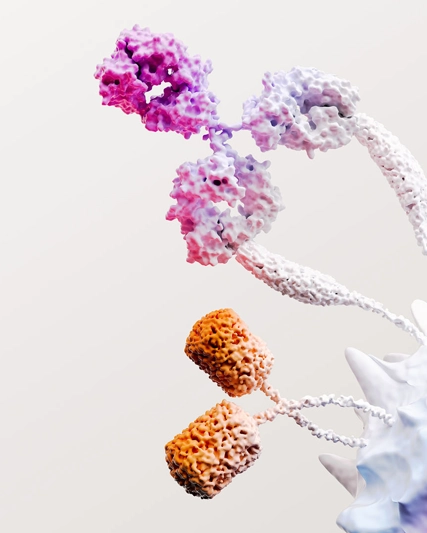Issued: London, UK
For media and investors only
ViiV Healthcare presents phase I clinical trial findings of a cabotegravir long-acting injectable investigational formulation allowing at least four months between doses
- Data show for the first time a new ultra long-acting cabotegravir formulation (CAB-ULA) that doubles the current dosing interval
- Pharmacokinetic, tolerability and safety data supports moving CAB-ULA to the next stage of clinical development
GSK plc (LSE/NYSE: GSK) announced that ViiV Healthcare, the global specialist HIV company majority owned by GSK, with Pfizer and Shionogi as shareholders, today announced positive findings from its phase I study showing that an investigational formulation of cabotegravir, known as cabotegravir ultra long-acting (CAB-ULA), can be dosed at intervals of at least four months. This is the company’s first step towards delivering ultra long-acting injectable HIV treatment and prevention medicines that would potentially enable people to have at least four months between visits to the clinic.
Data also showed that the intramuscular dosing of CAB-ULA has a safety and pharmacokinetic (PK) profile that supports a longer dose interval.1 These findings were presented today at the Conference on Retroviruses and Opportunistic Infections (CROI 2024)2, in Denver, Colorado.
ViiV Healthcare is conducting a registrational study of CAB-ULA in 2024 to further evaluate its use for the prevention of HIV in adults. Future areas of study will include its potential use in combination with other medicines as a complete, ultra long-acting HIV treatment regimen.
Kimberly Smith, M.D., MPH, Head of Research & Development at ViiV Healthcare, said: “The HIV community has told us of their desire for longer-acting medicines that can help alleviate the burden of daily treatment. ViiV Healthcare is a pioneer and leader in the development of long-acting HIV medicine, having already brought innovations through injectable therapies to the HIV community. This new formulation of cabotegravir (CAB-ULA) with a higher concentration and at least double the half-life puts us on the path toward delivering dosing at every four months for HIV treatment and PrEP.”
The ongoing, open-label, single-dose, dose-escalation phase I study in 70 healthy adults evaluated the safety and PK of two different formulations of cabotegravir and their potential for less frequent dosing. To evaluate the long-acting potential of these regimens, their PK profiles were compared against the 200 mg/mL intramuscular formulation of cabotegravir (CAB200), which is currently approved for the prevention of HIV by itself or for the treatment of HIV (when combined with rilpivirine).
One part of the study evaluated single doses of CAB-ULA administered subcutaneously (SC) in 16 participants or intramuscularly (IM) in 32 participants at doses of 800 mg, 1200 mg, and 1600 mg. The maximum observed plasma concentration of CAB-ULA, regardless of route of administration, was lower than CAB200 IM at the same dose level, indicating slower absorption of CAB-ULA. The projected half-life (measure of time the drug stays in the body) of CAB-ULA (SC) and CAB-ULA (IM) was six times greater and two times greater, respectively, than the half-life of CAB200 IM. PK simulations enabled researchers to predict that a 1600 mg/3mL IM dose of CAB-ULA administered every four months or greater could potentially achieve a similar level of medicine exposure compared to the approved 600 mg/3mL IM dose of CAB200, which is administered every two months.
Administration of CAB-ULA was well tolerated with no adverse events (AEs) leading to participant study discontinuation. All participants who received SC doses of CAB-ULA reported injection site reactions (ISRs), while 22/32 who received IM doses reported ISR events. The majority of IM ISRs were mild pain (grade 1) that lasted less than 7 days. Even though dosing in this study was higher than the currently approved CAB200 IM, the CAB-ULA IM ISR profile appeared comparable to the established CAB200 IM ISR profile.
Kelong Han, Ph.D., Primary Study Investigator, GSK, said: “These findings suggest CAB-ULA has a PK profile with the potential for a dosing interval of at least four months, which is longer than any currently approved HIV prevention option. We look forward to the further clinical development of this promising medicine. As we look to the future, further advancements in longer acting medicines have the potential to revolutionise how HIV is treated and prevented.”
A second part of the study evaluated a variety of doses of CAB200 administered by SC injection in 22 participants in combination with recombinant human hyaluronidase PH20 (rHuPH20), an enzyme that enables a large amount of fluid to be rapidly delivered by subcutaneous injection. In this part, rHuPH20 (10,000 IU) was administered first, followed by CAB200 at 800 mg, 1600 mg, and 3200 mg doses.
Following co-administration of CAB200 + rHuPH20, the observed CAB plasma concentration increased proportionally with dose, and the maximum observed CAB plasma concentration was higher than CAB200 IM alone at the same dose level, indicating an increased initial absorption rate of the medicine. The mean half-life for the three different CAB200 + rHuPH20 doses was similar to CAB200 IM alone, indicating a low potential to achieve less frequent dosing.
ISRs occurred in all participants with a dose-related trend for increased ISR grades. One participant who received the highest CAB200 dose (3200mg) SC + rHuPH20 experienced a drug-related serious AE of injection site erythema with necrosis. Based on these combined findings, ViiV Healthcare is no longer pursuing CAB 200 SC + rHuPH20 for ultra long-acting dosing.
About ViiV Healthcare
ViiV Healthcare is a global specialist HIV company established in November 2009 by GSK (LSE: GSK) and Pfizer (NYSE: PFE) dedicated to delivering advances in treatment and care for people living with HIV and for people who are at risk of acquiring HIV. Shionogi became a ViiV shareholder in October 2012. The company’s aims are to take a deeper and broader interest in HIV and AIDS than any company has done before and take a new approach to deliver effective and innovative medicines for HIV treatment and prevention, as well as support communities affected by HIV.
For more information on the company, its management, portfolio, pipeline, and commitment, please visit viivhealthcare.com.
About GSK
GSK is a global biopharma company with a purpose to unite science, technology, and talent to get ahead of disease together. Find out more at gsk.com.
Cautionary statement regarding forward-looking statements
GSK cautions investors that any forward-looking statements or projections made by GSK, including those made in this announcement, are subject to risks and uncertainties that may cause actual results to differ materially from those projected. Such factors include, but are not limited to, those described under Item 3.D “Risk factors” in the company's Annual Report on Form 20-F for 2022, and Q4 Results for 2023.
References
K. Han, et al. Phase I Study of Cabotegravir Long-Acting Injectable Formulations Supports ≥4-Monthly Dose Interval. Presented at Conference on Retroviruses and Opportunistic Infections (CROI). March 2024.
https://www.croiconference.org/croi-2024-attendees-resources/


